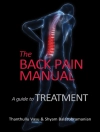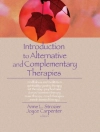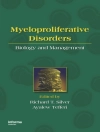This volume analyses the relevance of daily travel in the quality of life of individuals. It provides a broad understanding of the links between life satisfaction, well-being and travel, the importance of commuting, and different evaluations and measures to assess the experience of commuting and quality of life. Chapters in this book relate travel and quality of life to the built environment, accessibility and exclusion, travel mode choice, travel satisfaction and emotions. It brings together distinguished researchers from a variety of academic backgrounds providing conceptualizations and applications, presented as case studies, for daily travel and well-being. Findings presented in this book are highly relevant for transport planners, transport marketers, public transport authorities, and environmental professionals in the pursuit of improving people’s life.
Зміст
Part I. Introduction.- Ch 1. Commuting and Happiness: What Way Feels Best for What Kinds of People?; Sascha Lancée, Martijn Burger and Ruut Veenhoven.- Ch. 2. Travel and Quality of Life; Tim Schwanen.- Part II. Conceptualizations.- Ch. 3. Built Environment, Travel and Quality of Life; Lawrence D. Frank.- Ch. 4. Accessibility and Exclusion Related to Well-Being; Graham Currie.- Ch. 5. Travel Mode Choice and Well-Being; Moshe Ben-Akiva.- Ch.6. Travel Satisfaction and Well-Being; Patricia L. Mokhtarian.- Ch. 7. Travel and Emotions; Tommy Gärling.- Part III. Case-Study Applications.- Ch. 8. Public Transport Experiences: The Mobility Collector; Yusak Susilo.- Ch. 9. Mobility in Later Life and Well-Being: The Case of Norfolk; Charles Musselwhite.- Ch. 10. Children´s Travel and Well-Being in Quebec City; Owen Waygood.- Ch. 11: Mobility, Chronic Disease and Well-Being; Amit Birenboim.- Ch. 12. Walking and Well-Being: A
Self Help Intervention in the City of Glasgow; Nanette Mutrie.- Ch. 13. Cyclists´ Satisfaction in Canada; Ahmed El-Geneidy.- Ch. 14. Travel to Work by Car or Active Modes: A Case Study of Self-Reported Stress in Sydney; Chris Rissel.- Ch. 15. Does a Shift from Car to E-bike increase Commuters’ Well-Being?; Joost de Kruijf, Dick Ettem and Martin Dijst.- Part V. The Future.- Ch. 16. Travel and Well-Being: Future Prospects; Margareta Friman, Lars E. Olsson and Dick Ettema.
Про автора
Margareta Friman is Professor of Psychology at Karlstad University (Sweden). She is Associated Editor of the Frontiers in Psychology, Environmental Psychology (2016-present). In 2014, she received the Håkan Frisinger Foundation for Transportation Research Award as a prominent researcher. Margareta Friman has authored and co-authored close to 100 book chapters, articles, and technical reports primarily in the areas of consumer satisfaction, service quality in public transport, soft transport policy measures and travel behavior, and consumer emotions. Her articles have been published in international journals in psychology, economics, and transportation.
Dick Ettema graduated from Eindhoven University of Technology with a Ph.D. in architecture, building and planning. After working both in academia and consulting, he is now Associate Professor of Human Geography at Utrecht University. Dick Ettema has co-edited one book and has published about 100 articles, bookchapters and technical reports in the area of activity and time use analyses, accessibility analysis, longer-term mobility decisions and well-being implications of travel. His articles have been published in journals in transportation and urban planning. He is member of the Committee on Travel behaviour and Values of the US Transportation Research Board, co-chairman of the World Conference of Transportation Research Special Interest Group on Travel and ICT, and member of the editorial boards of Journal of Choice Modelling and Journal of Transport and Land Use.
Lars E. Olsson graduated from Göteborg University with a Ph.D. in Psychology of decision making. After a position as researcher at the Center for Consumer Research at the School of Business, Economics, and Law in Gothenburg, he was in 2009 recruited to the Service and Market Oriented Transport Research Group (SAMOT). He is now Associate Professor of Psychology at Karlstad University. Lars E. Olsson has published research in the areas of sustainability, environmental behavior, consumer experiences, travel behavior and well-being. His articles have been published in international journals in psychology, environmental studies, economics, and transportation.












